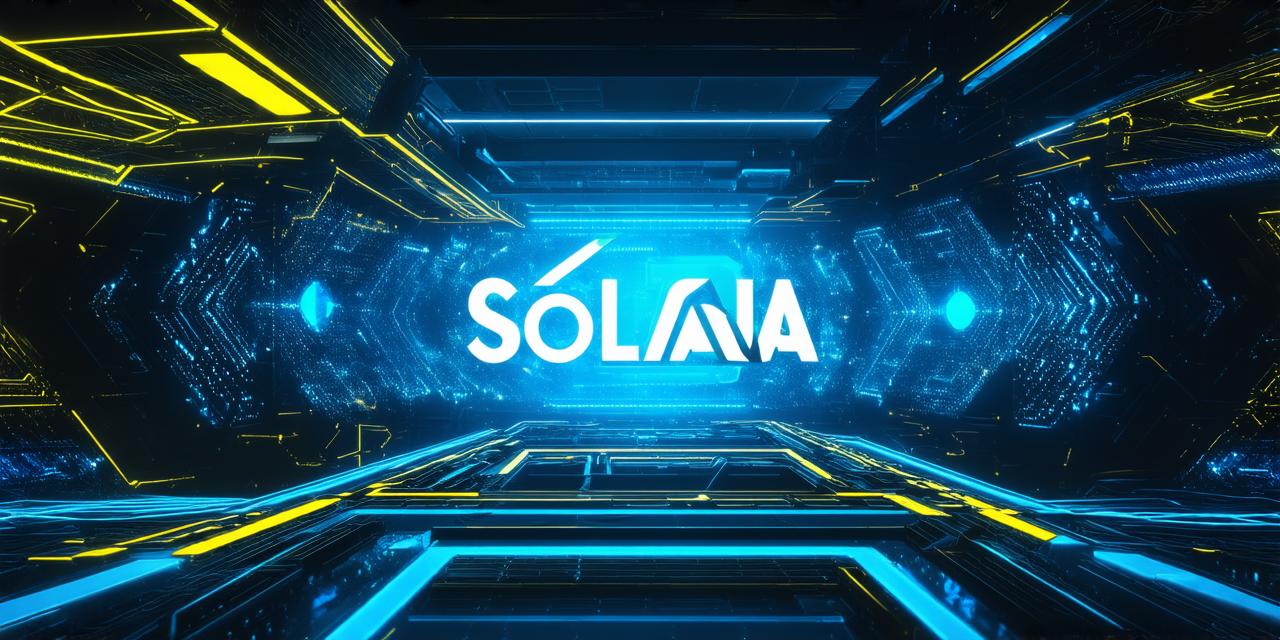Who Created Solana Blockchain?
Solana blockchain was created by Anatoly Yegorov in 2017. Yegorov is a Russian-American software engineer who has been involved in the blockchain industry since its early days. He co-founded the Bitcoin company Coinsetter, which was acquired by Circle (now part of Fidelity National Information Services) in 2015.

After leaving Coinsetter, Yegorov began working on a new blockchain project that aimed to solve one of the biggest challenges facing blockchain technology: scalability. He realized that most existing blockchains were slow and expensive to use, with transaction fees that could be prohibitively expensive for certain applications.
To address this problem, Yegorov developed a novel consensus algorithm called “Proof of Stake with Distributed Data Structure”. This algorithm allowed Solana to achieve high scalability while maintaining a secure and decentralized network. In addition, he also developed a new programming language called Rust, which is designed specifically for building fast, efficient blockchain applications.
Evolution of Solana Blockchain
Solana blockchain was launched in 2019 as a public testnet, allowing developers to experiment with the platform and build decentralized applications (dApps). The initial focus of the platform was on gaming and entertainment, as these industries were among the first to adopt blockchain technology.
However, the success of Solana went beyond these early use cases, and it quickly became a popular choice for building decentralized finance (DeFi) applications. This is because DeFi applications require high performance and scalability, which Solana was able to provide thanks to its novel consensus algorithm and fast transaction speeds.
One of the key milestones in the evolution of Solana blockchain was its integration with Ethereum, the largest and most popular blockchain platform in the world. This integration allowed developers to build dApps on Solana that could interact with Ethereum-based dApps, significantly expanding the range of use cases for the platform.
Another important development was the launch of the Solana SRM (Solana Native Token) in 2021. The SRM is a utility token that allows users to participate in the governance of the Solana network and access exclusive rewards and discounts. This token has been a key driver of adoption for the platform, as it gives users a stake in its growth and success.
Real-Life Examples of Solana Blockchain in Action
Solana blockchain has already had a significant impact on a number of industries, including gaming, entertainment, and finance. Here are some real-life examples of how the platform is being used:
- Games: Solana has been used to build a number of successful blockchain games, including “Decentraland” and “Splinterlands”. These games use the platform’s fast transaction speeds to enable seamless gameplay and secure in-game purchases.
- Collectibles: Solana has also been used to build decentralized collectible platforms like “OpenSea” and “Rarible”. These platforms allow users to buy, sell, and trade unique digital assets on a secure and transparent blockchain.
- DeFi: Finally, Solana has become a popular choice for building decentralized finance (DeFi) applications. For example, the platform is home to the popular lending protocol “Aavegotchi” and the decentralized exchange “Serum”. These applications use Solana’s fast transaction speeds and low fees to enable users to trade cryptocurrencies and access other DeFi services.
Comparing Solana to Other Blockchains
When comparing Solana to other blockchains, it’s clear that the platform stands out for its speed and scalability. While many blockchains struggle with high transaction fees and slow confirmation times, Solana is able to process thousands of transactions per second with minimal fees.
In addition, Solana’s consensus algorithm allows it to achieve high scalability while maintaining a decentralized network. This makes it an attractive choice for applications that require fast and efficient processing, such as decentralized finance (DeFi) and gaming.
Summary
Solana blockchain is a relatively new platform that has already had a significant impact on the blockchain industry. Its novel consensus algorithm and fast transaction speeds make it an attractive choice for building decentralized applications in a range of industries, from gaming to finance. As the platform continues to evolve and grow, we can expect to see even more exciting use cases emerge.
